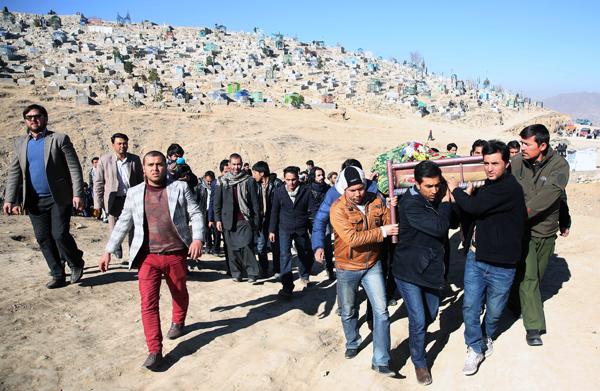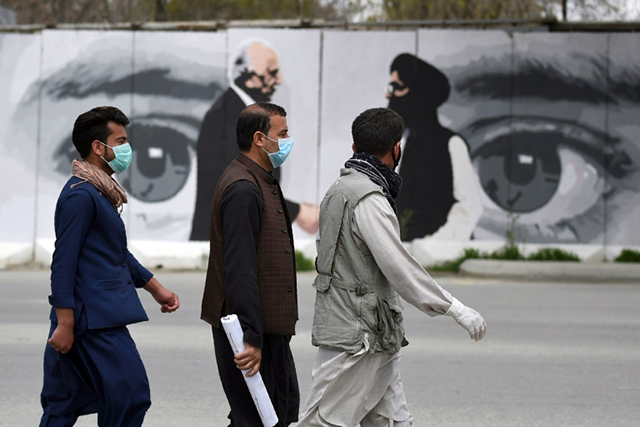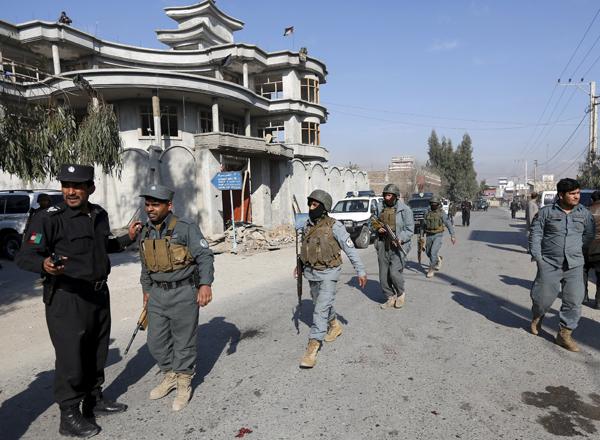You are here
Taliban reject peace talks with Afghan government
By AFP - Mar 05,2016 - Last updated at Mar 05,2016
KABUL — The Taliban on Saturday refused to hold direct peace talks with the Afghan government, dealing a blow to international efforts to revive long-stalled negotiations aimed at ending the deadly 14-year insurgency.
The announcement, which comes as face-to-face talks were expected to start in Islamabad this week, stressed longstanding preconditions for dialogue including the departure of foreign troops from Afghanistan.
The Taliban's seemingly intractable position follows a string of military victories for the insurgent group after NATO formally ended its combat operations more than a year ago.
"We want to repeat our stance once again that until the occupation of foreign troops ends, until Taliban names are removed from international blacklists and until our detainees are released, talks will yield no results," the group said in a statement.
The announcement marks a setback in efforts by Afghanistan, China, Pakistan and the United States to restart negotiations aimed at ending the insurgency.
Delegates from the four countries met in Kabul late February for a fourth round of talks aimed at reviving the nascent peace process, which stalled last summer.
The quartet had called for a direct meeting between the Taliban and Kabul by this week, a deadline that some analysts called "completely unrealistic".
"We unequivocally state that the esteemed leader of Islamic Emirate [Taliban] has not authorised anyone to participate in this meeting and neither has the Leadership Council of Islamic Emirate decided to partake in it," the Taliban statement added.
The group also accused the United States of duplicity, saying it had boosted troop numbers, increased air strikes and night raids against the insurgents in tandem with its efforts to restart talks.
Spike in violence
The Taliban have also stepped up attacks on government and foreign targets in Afghanistan — even in the winter months when fighting usually abates — underscoring a worsening security situation.
Afghan security forces have suffered record casualties since NATO ended its combat mission in December 2014, leaving them to battle the resurgent Taliban largely on their own.
In recent months the Taliban briefly captured the northern city of Kunduz, the first urban centre to fall to the insurgents, and have seized territory in the opium-growing southern province of Helmand.
Observers say the intensifying insurgency highlights a push by the militants to seize more territory in an attempt to wrangle greater concessions if and when the talks resume.
"The Taliban may say 'no' today but one day they will want to take part in talks — from a position of great strength," Kabul-based military analyst Atiqullah Amarkhil told AFP.
"That explains why their insurgency is getting increasingly bloodier."
Kabul has repeatedly called for all Taliban groups to sit at the negotiating table though President Ashraf Ghani has said his government will not make peace with those who kill civilians.
A recent UN report highlighted more than 11,000 civilian casualties in 2015 including 3,545 deaths, a new record since 2009 when the agency began tabulating the statistics.
Pakistan — the Taliban's historic backers — hosted a milestone first round of talks directly with the Taliban in July.
But the negotiations stalled when the insurgents belatedly confirmed the death of longtime leader Mullah Omar, sparking infighting within the group.
Related Articles
KABUL — The Afghan Taliban Sunday reiterated their pre-conditions for the resumption of peace talks with Kabul, including their removal from
KABUL — The Taliban said it would on Sunday release the first prisoners in a delayed exchange deal with the Afghan government - a potential
JALALABAD, Afghanistan — At least 14 people were killed when a suicide bomber struck the home of a prominent politician in Jalalabad Sunday,



















